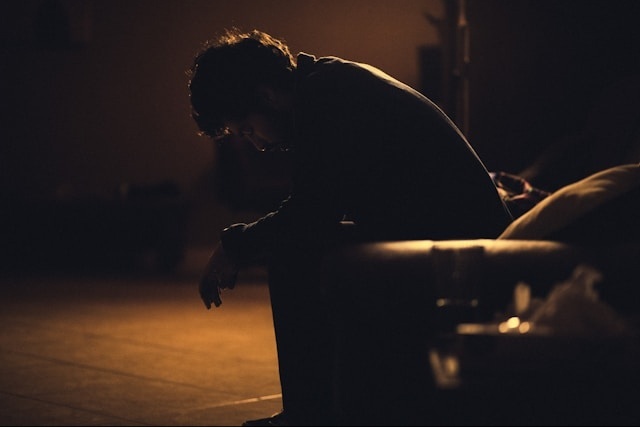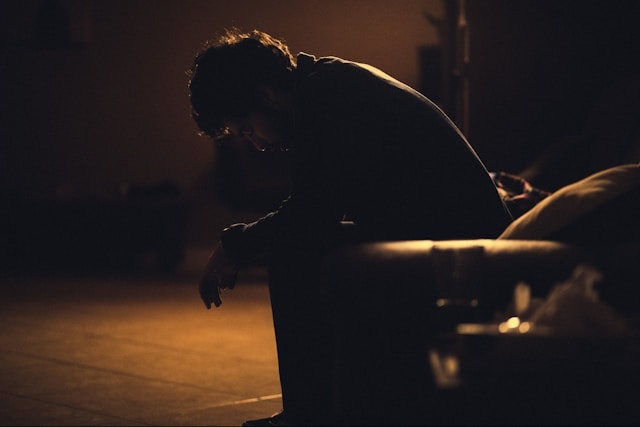Anxious Thoughts Hit Hardest at Night — Here’s Why (and What You Can Do)

You’ve been here before. It’s late. You’re already in bed. The rest of the world is quiet and probably asleep, but you’re lying there trying to navigate all of these anxious thoughts stuck in your head. Your brain is racing. You’re replaying old conversations, worrying about what tomorrow could bring, and running through various worst-case scenarios.
You’re tired, exhausted even. All you want to do is fall asleep, but your anxiety is in full control. It’s loud, overwhelming, and persistent. Why does your anxiety always hit you so hard at night when all you’re trying to do is relax?
Anxious thoughts hit hardest at night. This is actually a lot more common than you may think. The good news is that taking the time to better understand why this is happening to you is one of the best ways to learn how to better manage it. Let’s learn more about why anxious thoughts hit hardest and night and what you can do about it.
Why Anxiety Is Worse at Night
 Nighttime anxiety is actually rooted in the way that your body and brain respond when the stimulation from your day subsides. Here are a few of the reasons that anxiety can be worse at night:
Nighttime anxiety is actually rooted in the way that your body and brain respond when the stimulation from your day subsides. Here are a few of the reasons that anxiety can be worse at night:
Your Body’s Circadian Rhythm
Your body follows a natural rhythm that helps to control hormone and sleep levels called the circadian cycle. The stress hormone, cortisol, decreases at night, but for people living with anxiety, it can spike. Stress can negatively impact sleep stages, which can make the body sensitive and restless. When you don’t get enough sleep in general or quality sleep, the fatigue that you experience can reduce your ability to manage your emotions and rationalize.
Lack of Distractions
During your day, your brain is jam-packed trying to help manage and juggle all of those different tasks, like your career, roles, responsibilities, to-dos, conversations, errands, and more. Even though these tasks can be stressful, they keep your mind busy. But at night, these distractions disappear. Without this constant noise, your thoughts can consume you.
Overthinking
As your physical activity during the day starts to slow down, your mind will turn inward. The minor worries that you have can spiral out of control. Small concerns can even feel urgent or threatening.
How to Calm Nighttime Anxiety
You may not be able to completely turn off your anxiety, but you can work to build healthy habits to create a sense of calm, especially at night.
Create and Stick to a Bedtime Schedule
Creating and sticking to a bedtime routine aids your body and brain in knowing when it’s time to go to bed so they can work simultaneously to slow down, relax, and rest. Try to go to bed at the same time each night and wake up at the same time each morning. And yes, this includes weekends. You can always try to create a calming ritual before bed, like drinking a cup of tea, reading a book, listening to music, or taking a bath.
Try Grounding Techniques
A lot of anxiety comes from worrying about past and present experiences. You can help bring your mind back to the present moment with the help of grounding techniques. The 4-7-8 breathing technique is a great one to start with. Try it now. Breathe in for 4 seconds, hold for 7 seconds, and breathe out for 8 seconds.
Seek Additional Help
Sleep is essential. If you’re struggling with nighttime anxiety, and it’s starting to feel like it’s out of your control, it’s okay and even encouraged to seek additional support. Anxiety therapy can help you identify, challenge, and change those negative thought patterns. Reach out today to learn more about getting started with therapy options for anxiety.
